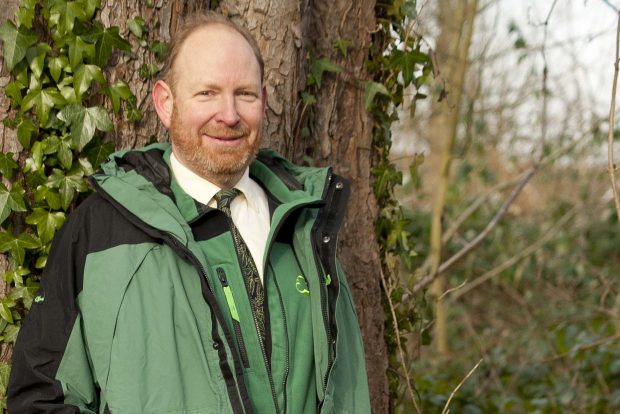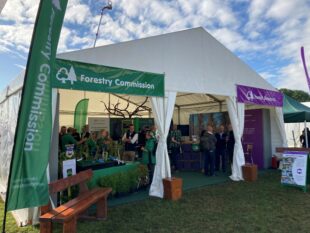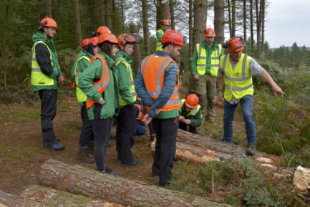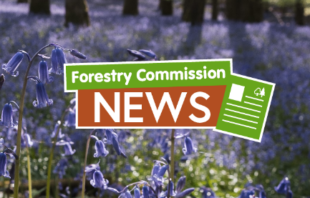
Forestry is not just about trees: it is about people. Working with enthusiastic, knowledgeable and inspirational people, across all parts of the forestry sector over the last 20 years in my various roles in the Forestry Commission, the last seven of which as Chair, has been a hugely rewarding experience. I would like to thank everyone I have worked with.
Forestry is about more than just trees and people. Trees form and shape our countryside and our cities. Landscapes, nature and biodiversity, liveable cities and wellbeing, carbon mitigation and water management all have their place in the forestry agenda. In grasping this complexity we have also learnt that what we have is threatened. We have to protect our forests from a worsening threat of disease, and in the face of climate change we need to plant more trees.
We are only at the very early stages of tackling and facing up to the growing impact of a changing climate. A new Tree Strategy will look at what we need to do. Wilding, regeneration, and native planting all have a place in a diverse landscape. Now may also be the time to review and evaluate our planting policies, which over the last thirty years, have been to plant almost entirely native species in England. Looking ahead we have to establish the right mix of trees for our future forests to give them the best chance of adapting to and surviving in a changing environment. They will also need, not only to sequester carbon, but be part of a functional multipurpose landscape producing critical raw materials for a resource constrained planet.
People have strong views about trees. This energy is inspirational. If we can align this energy with the Forestry Commission’s expertise in partnership and delivering policies and the practical skills of the private forestry sector, we will have a powerful resource. The challenge will be to get agreement among passionate people. However, good science, including importantly the work of Forest Research, is critical and needs be at the heart of developing what is likely to be not one but many approaches. What matters most is informed and practical action - now more than ever.
Our public forests must remain exemplars of sustainable multi-purpose forestry by responding to diverse future needs. Forestry England was the first part of Government to prepare Natural Capital Accounts and these provide a benchmark. The Estate is already the country’s largest provider of outdoor recreation welcoming some 24 million visitors a year in 226 million visits, but it needs to and is broadening its appeal. While taking good care of our myriad of Sites of Special Scientific Interest, we must build on current creative ideas for improving nature such as our reintroductions of species from water voles and pine martens to sea eagles and beavers. All of this whilst remaining the country’s largest supplier of timber. The Forestry Commission in England celebrated its first century last year, but that will count for nothing if we do not continue to use all its valuable experience as a base for the future.
The opportunity to work with forests and the people who care for them, including inside the Forestry Commission, has been a privilege. I know the Commission will go from strength to strength under its new chair William Worsley and I would like personally to thank all those who have helped, advised and supported me. Thank you.



2 comments
Comment by iain plumer posted on
Sorry to hear you are leaving we need 10x everyone like you to deal with the task ahead.i would even suggest a new model army of dedicated family's creating woodland farms .these would be like light houses observing change filtering water courses with charcoal and harvesting foods and product from the woods to supplie to the public through forestry commission centers we can overcome all problems by communication and cooperation .
you're s faithfully Broadleaf charcoal
Comment by Roderick Leslie posted on
Well done Harry. You've rounded off your tremendous contribution as Chair with about the best statement of where forestry is and what it should be doing in England. The achievements of the last 20 years have been impressive, but perhaps what is more important is that they have already laid the foundations for the huge challenges that lie ahead - not least communicating real multi-purpose management, for people, for the environment and for the economy, where the Forestry Commission increasingly looks a real leader.